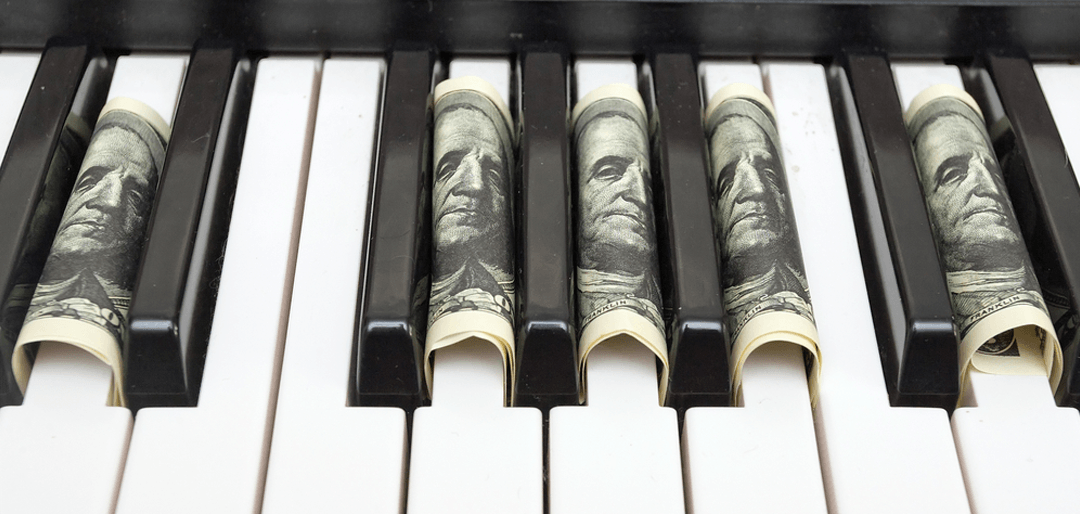Now, with more music readily accessible than ever before through streaming, downloads, and even a resurgent market for vinyl records, modern musicians must walk a fine line between the demands of commercialisation and following their own creative path.
Has the commodification of music made this an even harder tightrope to walk, and what does this mean for those wishing to make a living out of their music?
Welcome to the Machine
The debate over music as a commodity is hardly a new one, but in recent years it has gathered in momentum as the internet, the changing nature of the music industry and new technologies for creating music have all emerged as defining features of the way we produce and consume music.
In such a heavily mediatised, digital landscape, music runs the risk of becoming just another form of ‘content’ – quick, disposable fodder for jingles, ads and other forms of mass media [1].
Now, as developers unveil examples of AI programs for composing music without any human input [2], is music entering into its own fully automated production line phase – a new era of Muzak for the digital age?
Art vs. Money – An Age-Old Struggle
While it’s perfectly understandable that treating music as nothing but a pure product will leave a sour taste in most music connoisseurs’ mouths, the truth is that musicians have been performing a delicate balancing act between artistic and commercial concerns for centuries. Handel’s Music for the Royal Fireworks is no less of a masterpiece for having been composed under contract by George II, while Beethoven’s seminal Ninth Symphony was written on commission for the then princely sum of £50 [3].
Even moving into the twentieth century, there have always been close links between new forms of media and entertainment, and the world of classical music – composers from Shostakovich to Prokofiev and Aaron Copeland all found equal success composing for both the concert hall and film studios [4]. Each of them found ways of moulding their music to the medium they were working with – without sacrificing their artistic visions.
What Does This Mean for Today’s Musicians?
For modern musicians, composing software and digital audio workstations may have cast wealthy patrons and royal commissions into obsolescence, but the delicate balancing act between art and commerce remains largely the same – and composers are continuing to find new and innovative ways to express themselves within different mediums, whether it’s the ever-growing acceptance of video game music as a legitimate form, or Brian Eno creating computer start-up jingles for Microsoft [5].
New developments in technology will bring new challenges for musicians, but it will also bring new avenues for exploration and creative expression – AI assisted composing software in particular has the potential to support musicians as they work and drastically improve the composition process.
Musicians have always found ways to create great music within the framework of commercial demands and strictures – in fact many of the greatest musical works are the ones that subvert, challenge and transcend those conditions. The nature of the industry, the role of the composer and tools at their disposal may change, but this impulse to explore the outer limits of what is possible in music is unlikely to be going away any time soon.
[1] http://mixmag.net/feature/please-stop-calling-music-content
[3] https://ig.ft.com/sounds/classical-gig-economy.html
[4] https://www.gramophone.co.uk/feature/three-pioneers-of-film-music-shostakovich-korngold-and-copland
[5] http://www.electricpig.co.uk/2011/11/23/brian-eno-spills-windows-start-up-sound-secrets/index.html

